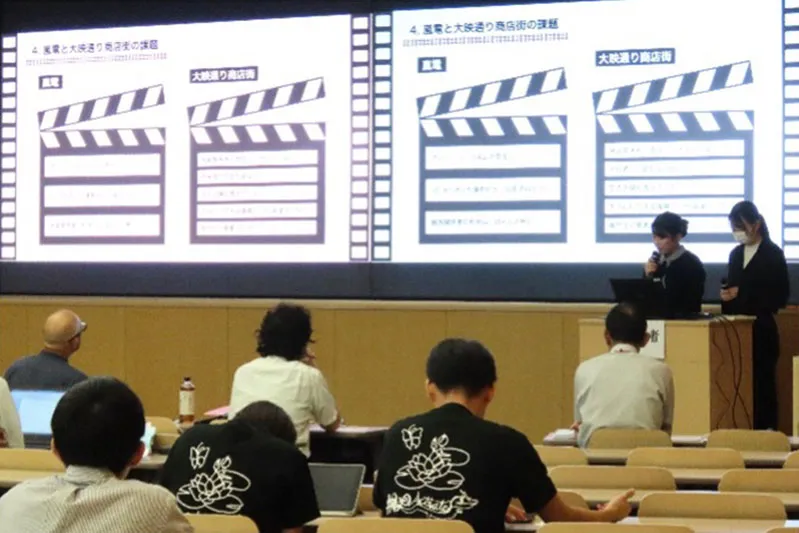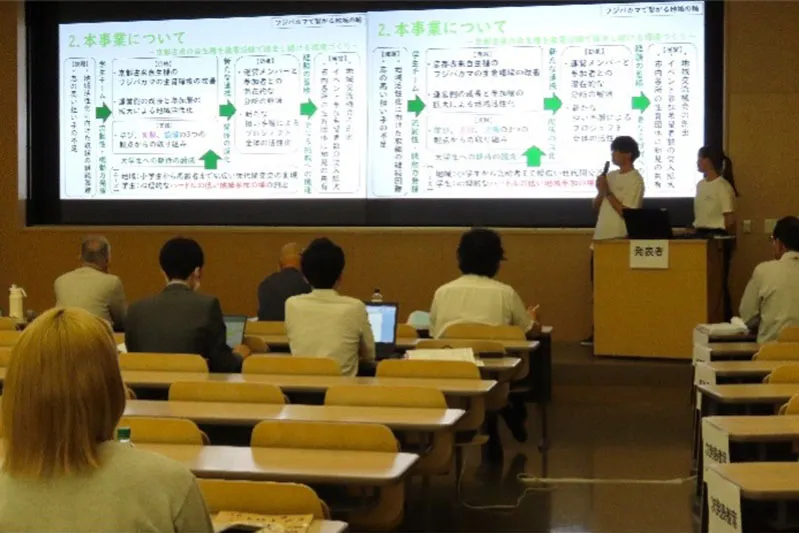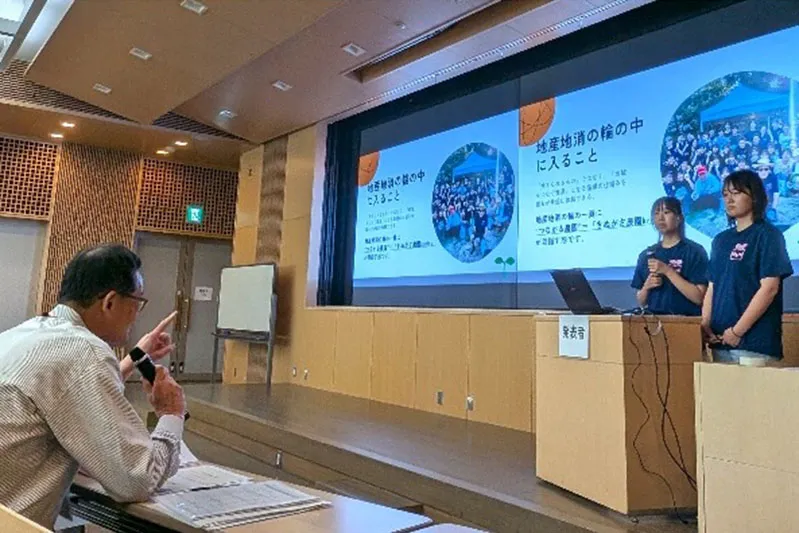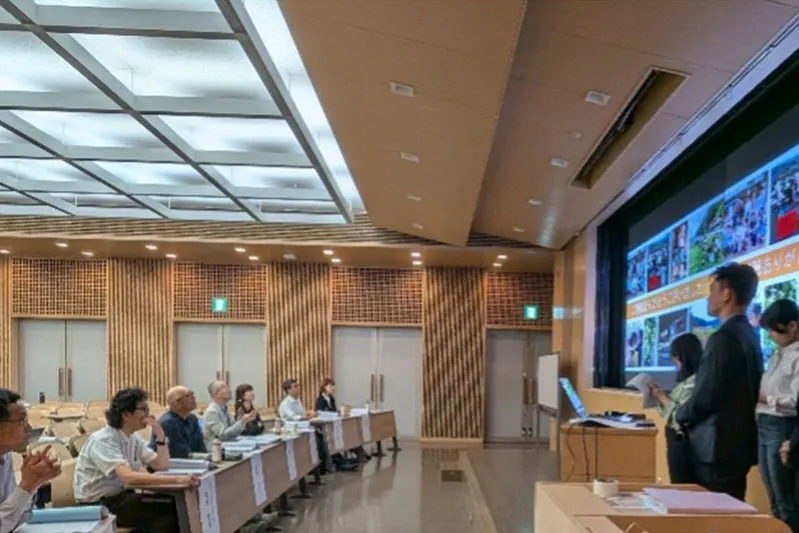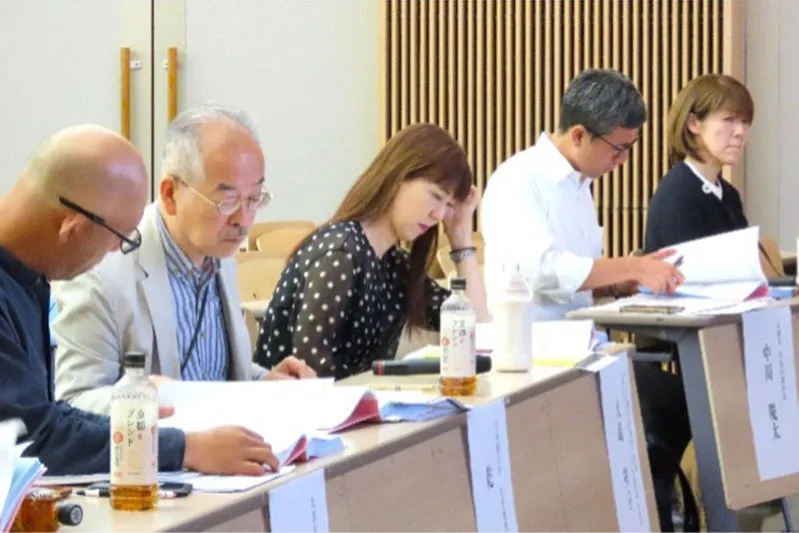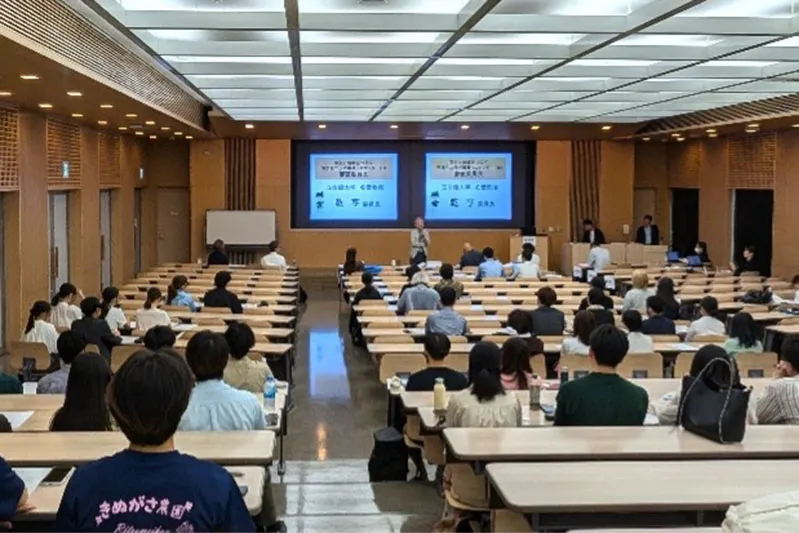- Business Overview
- Target Organizations
- Target Businesses
- Amount and number of donations
- About the application
- Main Schedule for the Future
- Selection Results
- Implementation Report
- About the recruitment of trial slots
- Inquiries
1. Business Overview
Kyoto City and the University Consortium Kyoto implements the “Learning Town Collaboration Project Connecting Students and the Community” in which universities, students, and the community collaborate to provide support funds to projects and projects that work on urban development and regional revitalization in Kyoto.
We look forward to learning in the field of practice through activities that work together with local organizations to tackle local issues and participate in the efforts of local organizations to support their movements.
It has been implemented since 16, and this year is the 22nd year.
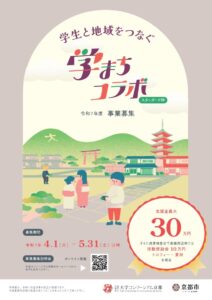
[Reiwa 7 “School Town Collaboration Project Connecting Students and the Community (Standard Frame)” Application Guidelines]
2. Target Organizations
An organization or group (*) that is a member of the University Consortium Kyoto member universities and junior colleges, and the majority of its members are students and the representative is a student. If the group consists of students from multiple universities, it is acceptable if the majority of the students are students from Kyoto member universities and junior colleges of the University Consortium.
*University departments, laboratories, seminars, clubs, student circles (circles composed of students from multiple universities are also acceptable), etc.
< precautions>
As a general rule, only one project can be applied for from the same organization or group. If there are multiple applications, it may be adopted as a single project or rejected. In addition, even if the application is from another organization or group, if it is considered to be the same business, we will make a decision on how to handle it after confirming the purpose of the project and the necessary confirmation of the affiliated organizations.
* If you are unsure of your decision, please contact us. We will consider it according to the specific details of the application.
3. Target Businesses
With the aim of solving local issues and revitalizing the city of Kyoto, projects that are implemented in Kyoto City during the fiscal year and that meet the following requirements are eligible.
However, political activities, religious activities, activities that promote specific ideas, violent or destructive activities, commercial businesses, etc. are excluded.
[Requirements]
(1) Projects in which organizations and groups work in cooperation and collaboration with local communities (resident organizations, civic activity groups, business operators, etc., mainly in the Kyoto City area), and students take the initiative to carry out activities.
*For new businesses, those that can be expected to collaborate with the local community in the future are also acceptable.
Please contact us if you have not decided on a specific partner at the time of application.
*Projects that are worked on in collaboration and collaboration are activities that work together with local organizations to tackle local issues and participate in the movements of local organizations and support those movements.
*Administrative agencies may be included in the cooperative destination, but cooperation with only administrative agencies is not possible.
Examples: Health and welfare, social education, community development, promotion of academics, culture, arts or sports, environmental conservation,
Research in various fields such as community safety, citizen lectures, events, etc.
(2) Those who have not received any subsidies or subsidies from Kyoto City other than the Gakumachi Collaboration Project.
4. Amount and number of donations
Up to 300,000 yen / 10-15 cases
*In addition, the implementing organization of the project recognized as the most excellent at the results report meeting scheduled to be held in March 8 of Reiwa
(1 group) will be awarded (certificate, trophy, and activity encouragement of 100,000 yen will be issued separately).
5. About the application
(1) Application period
Reiwa 7th year 4/1 (Tue) ~ May 31 (Sat) 13:00
*Submission of documents is data only, and paper submission is not required.
(2) Reiwa 7 Business Recruitment Briefing Session *Online
Date and time: (1) Thursday, April 17, Reiwa 7 18:30〜
(2) Friday, May 9, Reiwa 7 18:30 –
We also accept questions about how to write an application.
(3) How to apply
Step 1 Before You Start Writing Your Application
We recommend reading the master plan of the administrative district in which the activity will be carried out! In addition, please listen to the opinions of local people and related government agencies as much as possible regarding the background of the project implementation and the needs of the community. If you have any questions about the basic plan of the ward or points to keep in mind when working in the community, you can also consult with the Regional Power Promotion Office of each ward office or branch.
In addition to reconfirming and sharing your objectives and achievement goals, let’s discuss and think once again within the group whether the business content you are thinking about is the best way to achieve your objectives. In addition, for continuing projects, let’s thoroughly summarize the efforts made so far and organize the points for improvement and novelty so that they can be reflected in the application form.
Step 2 Let’s write an application!
Download the application form from the following>
●Reiwa 7 Recruitment Guidelines
●Reiwa 7 “School Town Collaboration Project Connecting Students and Communities (Standard Frame)” Application Form (Microsoft Word)
●Application Example
| Points to fill in |
★ Let’s check the judging criteria! ★ What is the purpose of implementing the business? Write down the purpose and the need for the region. ★ Who are you working with (or planning to work with)? What is the role of each? Let’s be specific. |
If you have trouble writing application documents…
If you have any concerns or questions, such as “I want to improve my internet environment, but can I use the support funds?”, please feel free to contact the University Consortium Kyoto. We also accept consultations by phone, email, and online.
Step 3 Register your business outline
Please use the form below to register your business overview.
Step 4 Submission of application documents
Please fill out the (1) application form (Microsoft WORD) downloaded in step 2 of this page and (2) reference materials (if any) and submit them using the submission form below.
(1) Application document data (Microsoft WORD)
(2) Reference material data (up to about 10 pages converted to A4 size. Please submit it as a PDF. *Only if there is
*Submission in paper format is not required for both (1) and (2).
*This year’s application has ended.
6. Main Schedule for the Future
First screening: After the application deadline ~ mid-June of Reiwa 7
Second screening (public presentation screening): Sunday, June 29, Reiwa 7 *Held at Campus Plaza Kyoto
Notification of support project decision and selection results: Mid-July 7, Reiwa 7
Certification ceremony and exchange meeting: Mid-July ~ late Reiwa 7 *Certificates will be issued to certified projects
Interim report: Mid-October ~ late October 7th year of Reiwa *Submission of documents
Final report: March 8, Reiwa *Submission of documents
Announcement: Mid-March ~ late March 8th year of Reiwa
Recruitment of General Auditors for the Second Screening (Presentation Screening)
We will hold a presentation review (second screening) meeting to decide the selected projects for this year’s Gakumachi Collaboration Project.
At the judging committee, the organizations that passed the first round of selection will each present their own elaborate presentations, appealing the effects and characteristics of the project, and the enthusiasm for the initiative, and make presentations for adoption.
This is an opportunity to see the efforts of universities and students in collaboration with the local community, so we look forward to your participation, including those who are interested.
Reiwa 7 “School Town Collaboration Project Connecting Students and the Community (Standard Frame)” Presentation Screening Committee
| Re | Sunday, June 29, Reiwa 7 10:00-16:25 (scheduled to end) *Depending on the progress of the day, the time may change slightly. |
| meeting place | Campus Plaza Kyoto 5th Floor, Lecture Room 1 |
| of the day | Second Screening (Presentation Judging) Schedule |
| Participation Fee | free |
★ About participation application
We are accepting applications for participation from June 18 (Wednesday) to June 28 (Saturday) 15:00, Reiwa 7.
If you would like to participate, please apply below. (Click Apply to open the application form.) )
* Reception has ended.
Selection Results
First Screening (Document Screening)
24 projects that passed the first selection (1 of which declined)
Second Selection (Presentation Judging)
The second selection meeting (presentation screening meeting) was held on June 29, 2025, and 13 projects were certified as support projects as follows.
| Project Name | Name of organization 【Name of Affiliated University】 Outline of the Administrative Region |
Project |
|---|---|---|
| Smile↑↑↑ | Smile↑↑↑ 【Ryukoku University】 Activity administrative district: Fushimi Ward |
concerns of elementary school students and create a place to belong, a candy event is held once a month at the children’s park, and through interaction with children, they accept concerns that they cannot talk to parents and school teachers. |
| A project to convey the charm of the mountainous area in Ukyo Ward through “food” | Kyoto pasta specialty store YuPPenJoBs [Kyoto University, Kyoto Women’s University, Doshisha University, Kyoto Seika University] Activity administrative district: |
area and using local ingredients, we will promote the charm of the region through events and product sales triggered by “food” in the Dan’in and Mizuo areas, and aim to increase the population involved and disperse tourists concentrated in urban areas. |
| Project to support children’s whereabouts in shopping districts | Ritsumeikan University Student Organization FamiRy [Ritsumeikan University] Activity administrative district: |
area, we will carry out activities to watch over children and support their place of residence, mainly elementary school students. Once a month, an event is held in the Ryoanji shopping street that children and parents can easily participate in. |
| Community Space GOEN Cafeteria | GOEN Shokudo [Otani University] Administrative districts: Kita-ku, Kamigyo-ku |
For adults and children in the area within a 1km radius of Otani University, a community cafeteria will be set up to eat curry together, and a different stage presentation will be held each time. |
| Keihoku Utsu Fureai Learning | Keihoku Utsu Treasure Hunting Association [Kyoto Seika University, Kyoto University of Foreign Studies] Administrative district: |
, we develop initiatives and events in which the community and students work together to think about the future of the region. Through the creation of paper plays based on local traditions and the holding of “Utsu University” to return the knowledge of the university, they interact with local residents. |
| Hollywood in Japan again | Sagabikande 23 [Saga Art University] Activity administrative district: |
as a movie town, events related to movies and filming will be held regularly in the shopping street, aiming to create a town where young creators can be born in the Taizuma area. In addition, we will improve the attractiveness of the Randen line, including the Daiei Street shopping street, and decentralize tourism. |
| Keihoku Bon Odori Inheritance Project | Student Organization K-Bond [Kyoto University, Kyoto Women’s University] Administrative district: |
, we collaborate with local residents to participate in Bon Odori experience meetings and local events with the participation of young people, and to develop a digital archive. We will also develop cooperation with local elementary schools and cultural exchanges with other regions to promote sustainable revitalization of the region. |
| KINUGASA Operation! Protect this city! | Student Disaster Prevention Circle Ritsumeikan FAST [Ritsumeikan University] Administrative districts: Kita-kuTaking |
advantage of the characteristics of the Kyoto and Kinugasa areas, disaster prevention workshops were held based on a hands-on understanding of the terrain and disaster risk. We aim to create a place where participants from diverse backgrounds, such as local residents, university students, and international students, can learn and interact together, and create a multicultural disaster prevention community. |
| Ichijoji, Sound Inheritance Project | “City, People, and Music” Seminar [Kyoto Seika University] Administrative district: Sakyo Ward |
Through the planning and operation of regional revitalization events in Ichijoji Temple, Sakyo Ward, the charm of Ichijoji Temple will be communicated to both local residents and visitors. Starting with the “Ichijoji Festival Autumn Festival” held at Ichijoji Park, we will hold a sound play workshop and an iron fan dance that has been passed down in the local area. |
| Shisei Kanten | Hozoji Exhibition Project [Kyoto City University of Arts, Kyoto University of the Arts, Kyoto Junior College of Economics, Kyoto University] Administrative district: Nakagyo-ku |
Hozoji Temple (Nakagyo-ku) will cooperate with the venue to plan and implement the exhibition. In this project, with the aim of providing a “place for dialogue and learning” between students, visitors (citizens and tourists), and temples, research workshops will be planned and implemented once a month at Hozoji Temple and Kyoto City University of Arts. |
| Kreis Regional Cafeteria ~Workshop connected by a circle of local production for local consumption~ | Kinugasa Farm Kreis [Ritsumeikan University] Administrative districts: Kita-ku, Ukyo-ku |
In order to support intergenerational exchange and children’s places during summer vacation, a “community cafeteria” is held, and curry made with summer vegetables grown at Kinugasa Farm is eaten with a wide range of generations, including local children and the elderly, and local connections are built through food. In addition, workshops will be held at the event to learn about humus initiatives and the connection between food and agriculture. |
| A circle of communities connected by Fujibakama | Fujibakama Project along the Randen Line Student Team [Ritsumeikan University] Activity administrative districts: Kita Ward and Ukyo Ward |
University students work to improve the growing environment of Fujibakama, and aim to grow as managers through learning, experimentation, and equipment maintenance. Through the project, we will deepen cooperation with organizations, companies, and schools inside and outside the region, expand the number of participants, eliminate the division between management and participants, and realize sustainable community development and regional revitalization. |
| Children’s Place Program | Learning Support Organization Apolo [Ritsumeikan University, Kyoto Prefectural University, Kyoto Institute of Technology, Osaka Gakuin University, University] Activity Administrative District: We aim to provide a safe place for junior high and high school students in Nakagyo Ward to belong, and to help |
children realize that they have a safe place to belong outside of school and home through interaction with university students and interactions with each other, so that they can have hope and goals for the future, and aim to eliminate relational poverty among children. |
Implementation Report
Reiwa 7 Presentation Screening Committee (2nd Selection Meeting)
On Sunday, June 29th, the second selection meeting (presentation screening committee) of the Reiwa 7 Gakumachi Collaboration Project was held at Campus Plaza Kyoto.
The 23 organizations that passed the first round of selection conveyed their enthusiasm about how to promote cooperation with the local community and the content of their projects.
This year, it was the highest number of applications in the past few years, and there were many new businesses, so it was a spectacular screening meeting.
The judges gave advice with sharp questions and encouragement on feasibility, continuity, and building relationships with the community, which was a great stimulus for the presentation organizations.
Reiwa 7th year certification ceremony and exchange meeting
On Saturday, July 26th, a certification ceremony was held at Campus Plaza Kyoto for the Reiwa 7th Academic Town Collaboration Project to Connect Students and the Community, and the 13 organizations selected this year were awarded certificates by Mayor Matsui of Kyoto.
The mayor sent words of encouragement, saying, “Through this project, I hope that you will become even more attached to the city of Kyoto and that you will continue to play an active role on the Kyoto stage in the future,” and the representatives of each organization who received the certificate expressed their determination.
After the certification ceremony, the selection committee members gave advice and impressions to each organization, and I think they were able to get good advice and hints for the organization in their future activities! !
Finally, I think it was a good opportunity to hold an exchange meeting and get to know each other’s activities with organizations with the same purpose. I hope that the horizontal connection will expand from here.
From now on, the activities of each organization will begin in earnest!
We will also announce it on the University Consortium Kyoto website and the university-regional collaboration portal site “GAKUMACHI STATION”, so please pay attention!
・https://www.gakumachi.jp/
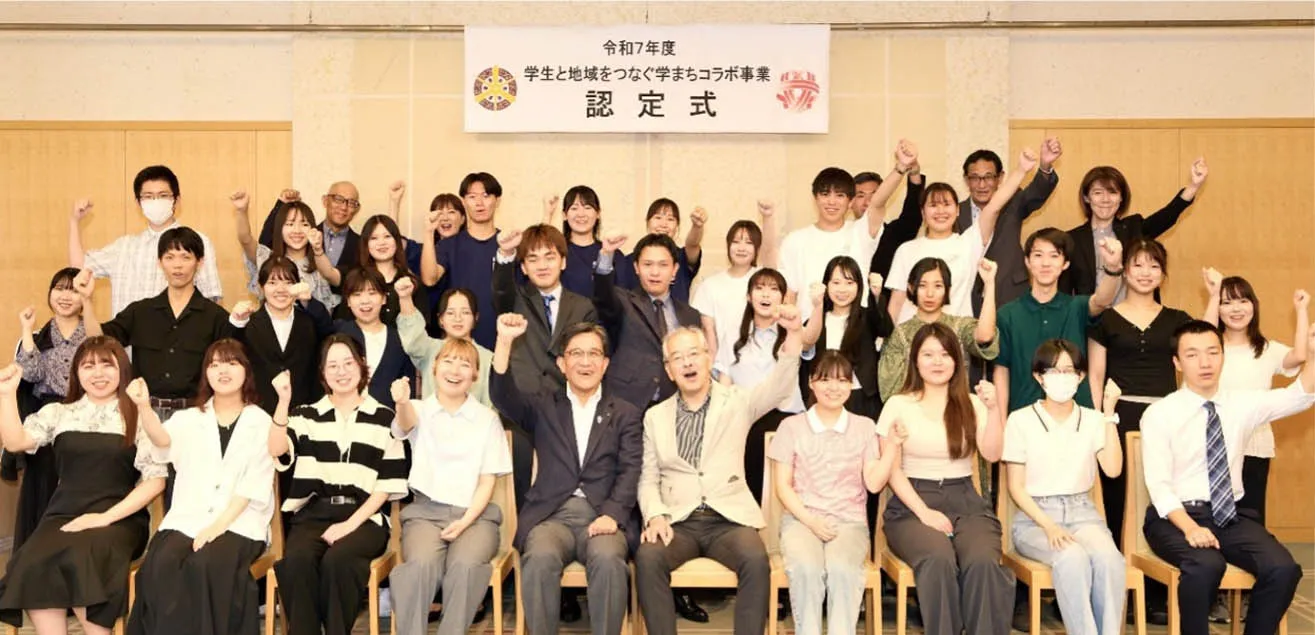
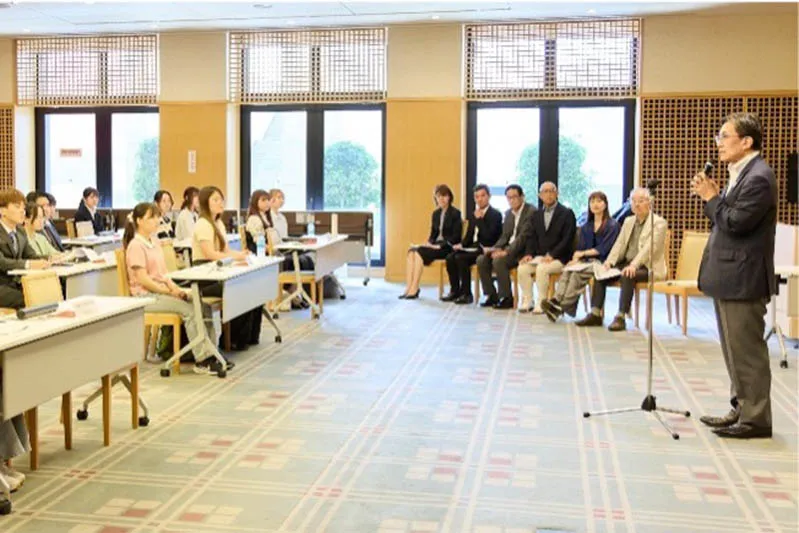
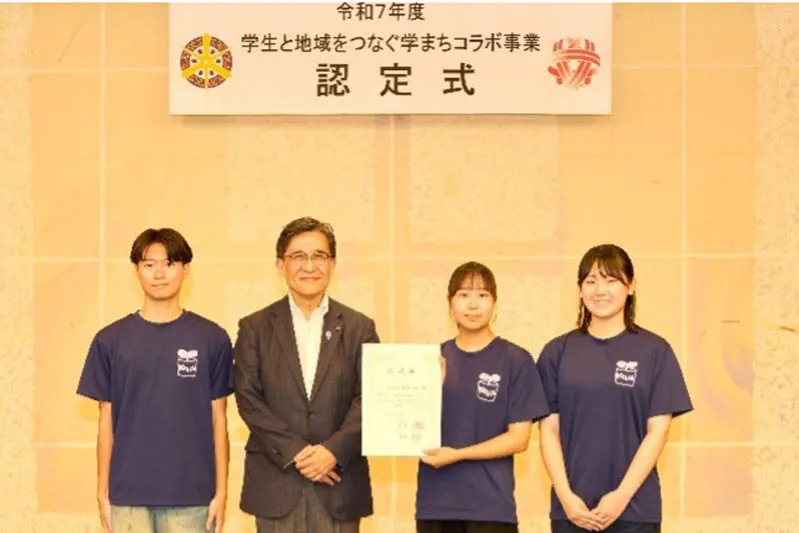
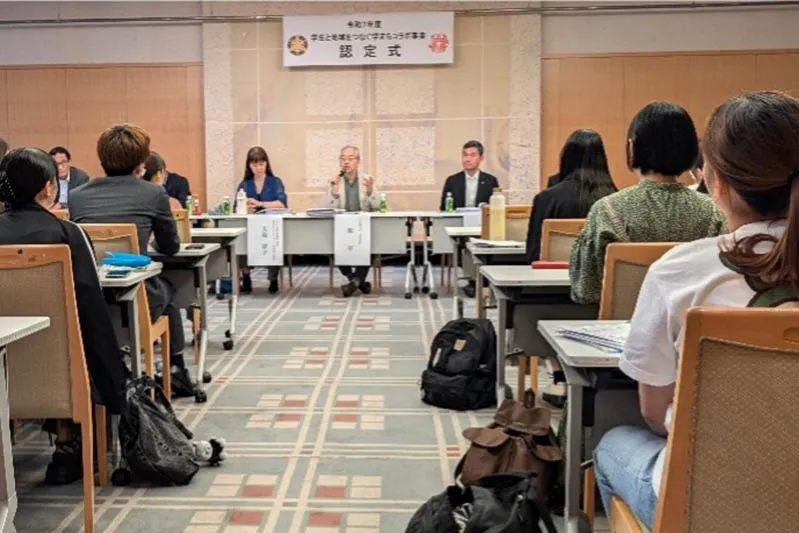
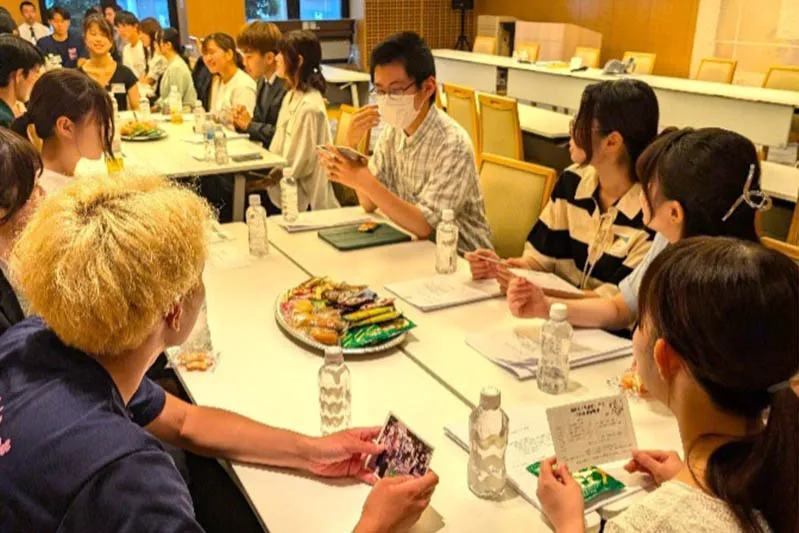
7. Recruitment of trial slots
As a new initiative from Reiwa 7, we will start recruiting trial slots for students who are about to start community activities.
For details, please check the trial frame website below.
Trial frame website: https://www.consortium.or.jp/project/chiiki/gakumachi-trial
Inquiries
University Consortium Kyoto Gakumachi Collaboration Project
TEL :075-353-9130 FAX: 075-353-9101
MAIL:gakumachi-admin-ml■consortium.or.jp
(Please change ■ to @ and send)
〒600-8216 Shimogyo-ku, Kyoto-shi, Nishitoin-dori, Shiokoji, Shimo-ku, Kyoto, Campus Plaza Kyoto
* Reception hours: Tuesday ~ Saturday 9:00 ~ 17:00














